

As Manhattan was being settled, developers would regularly have to clear out large rock outcroppings of schist and other craggy pieces of earth. While you can occasionally see where those rocks have been deliberately left behind for the landscape or for functional purposes, there are very few still under contention or at risk of disappearing. However, the New York Times recently highlighted a curious 30,000 square foot, 30-foot tall outcropping of bedrock in Inwood, currently for sale for $2.99 million. It gets even more complicated — the rock actually has two owners. The man putting the rock for sale, Ilan Tavor, only owns half. A next door co-op at 60 Cooper Street owns the other half, but not the portion closest to its own building.
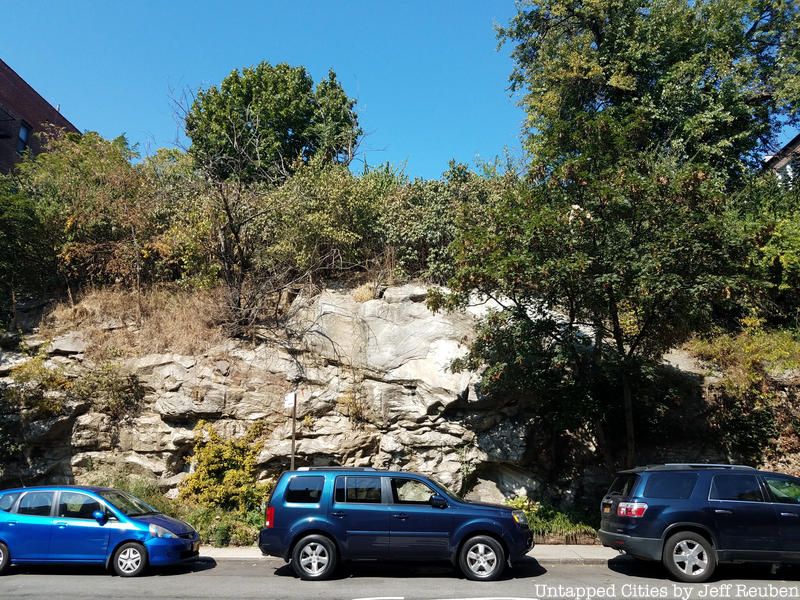
This complex jurisdiction has put a community garden run by 60 Cooper Street, the Alexander Garden, in jeopardy. As the New York Times reports, “sometime between the evening of June 30 and the morning of July 1, ‘No Trespassing’ signs appeared in the southern part of the garden. Calla lilies had been pulled out of the garden, along with nepeta, four o’clocks and liriope. Residents replanted some of the southern flowers on their property, and gardeners stopped gardening on Mr. Tavor’s side.” A laminated sign also went up with a fence “This portion of the garden is owned by 60 Cooper Street Co-Op” an arrow pointed to the right, “This is not” with an arrow going left. This is not the first time Mr. Tavor has put his portion of the rock up for sale: In 2018, he tried for $4 million, and earlier this year for $3.095 million.
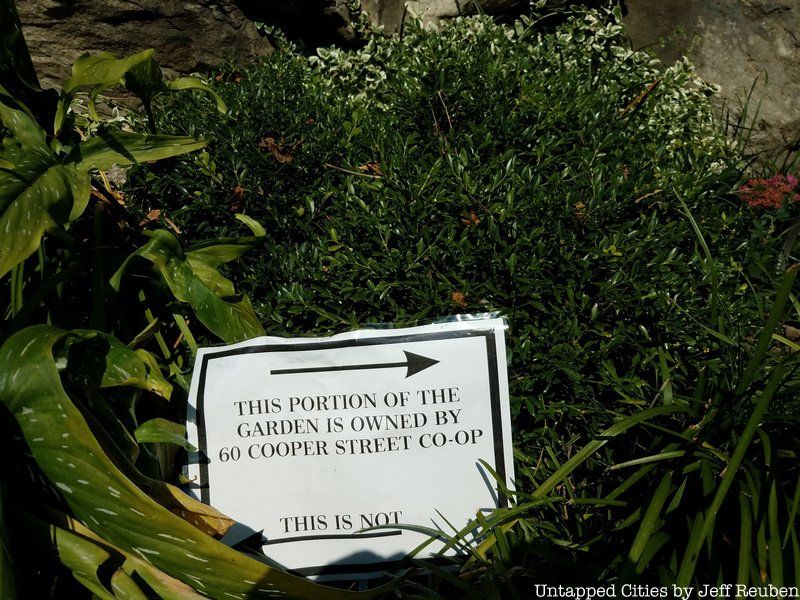
The Alexander Garden, which has a brass plaque to denote its existence, has been operating since 2005. It is named after a young son of residents at 60 Copper Street whose father started gardening the plot as part of his grieving process after Alexander died of Sudden Infant Death Syndrome. The garden has a website and Instagram account run by Susan de Vries, a preservationist and writer who is involved in the garden.
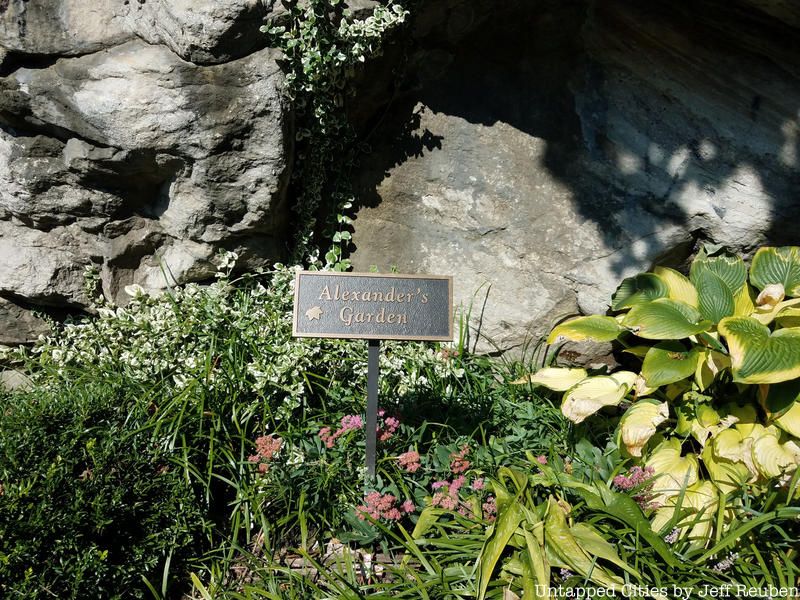
The website explains that the rock was once part of the Dyckman family property, whose farmhouse is just nearby and is a house museum. The lot on which the rock stands on was auctioned off between 1868 to 1871. Sometime in the early 1900s, the rock, which has alternatively been described as limestone or marble, became a tourist destination when it was thought that a serpent-pattern may be a fossil. Turns out, it’s simply a marking left from geologic processes. Most other rock formations in the area were dynamited out of existence with the development that accompanied the A train. Until the 1980s, it had a “sister” rock outcropping down the street, which was demolished when 57-75 Cooper Street was built.
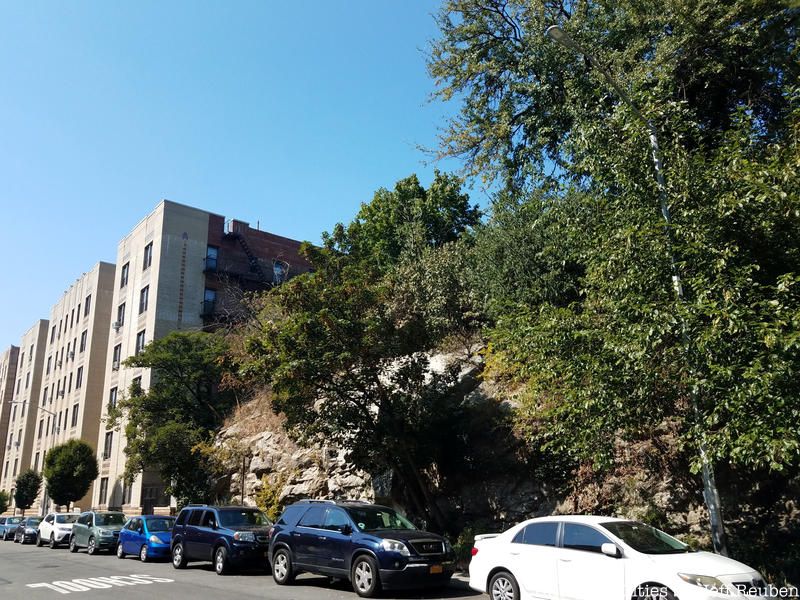
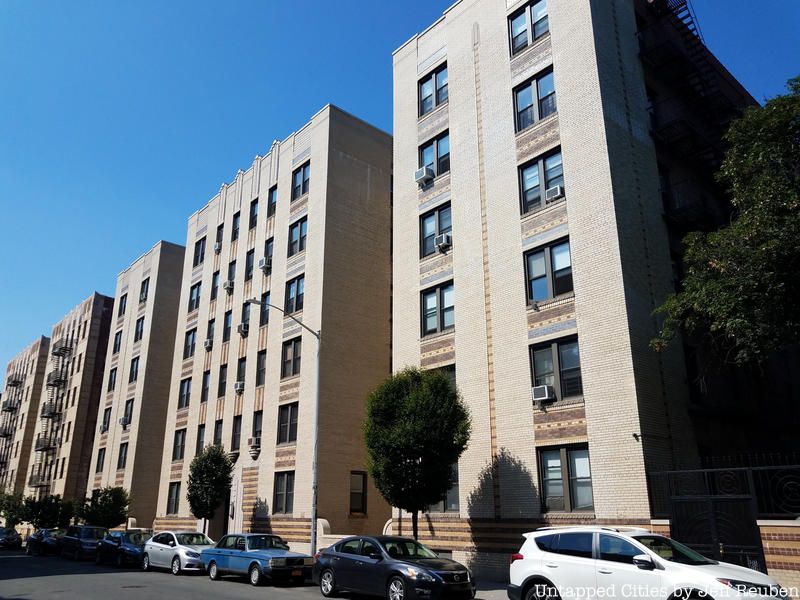
Trees have been growing atop and from the sides of the rock for quite some time, including a flowering apple tree, and residents refer to the rock as a “secret garden.” The garden’s website tracks what types of blooms can be found in Alexander Garden. This year, you could have seen climbing roses, daffodils, hyacinths, tulips, irises, calla lilies, and Columbine. Locals report that the garden has encouraged unique birds to remain here after the season. But after July, half of the garden is now overgrown and prevented from being tended. A hand-drawn signs from the co-op side says, “Please protect our garden.”
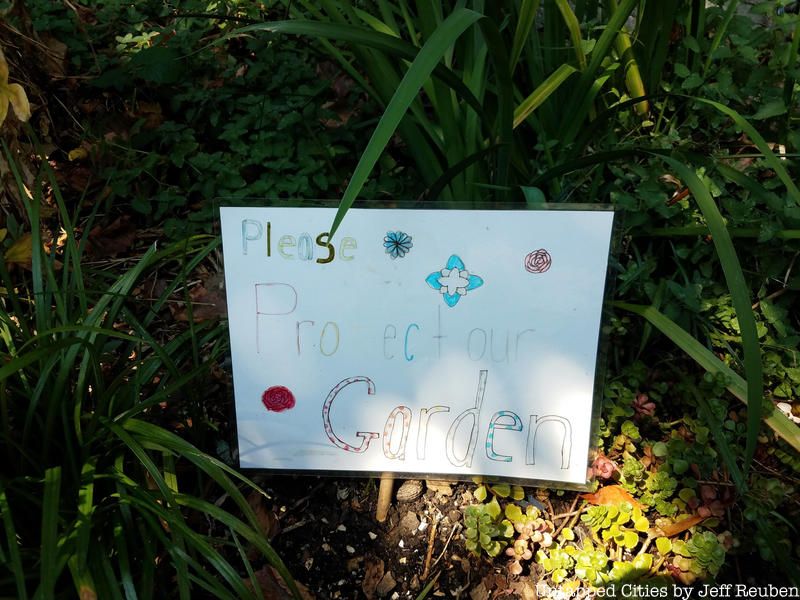
Of the sudden sale of the lot, The New York Times writes, “One possible explanation is that Mr. Tavor does not want a so-called adverse possession claim from the co-op: under state law, when someone inhabits and improves a neglected property, it might be possible to get the title to it after 10 years. This seems to have forced Mr. Tavor into an unusual situation: in order to sell his side of the rock, he is actively letting it go to seed.” The Times notes that half the rock could be easily demolished to build an apartment building, but it could get tricky in terms of managing noise with neighboring buildings.
Time will tell what will become of this ancient geologic formation, one of the last signs of the original Manhattan landscape. Development and rezonings have made Inwood property a hot commodity — maybe someone will be willing to take on the odd-shaped lot with half a rock. Or maybe the garden will remain in a state of split personality for the near and present future.


